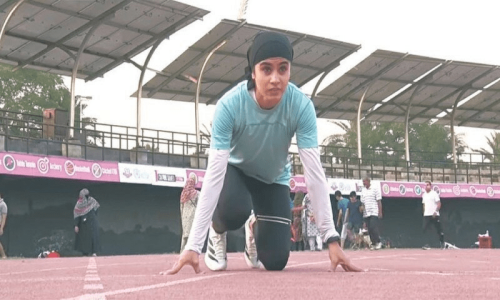LAHORE, Sept 4: Some 80,000 beggars in Bangladesh have given up beggary after benefiting from the micro-credit scheme of the Grameen Bank. “We asked beggars some three years ago if they would like to sell small items like toys instead of going door to door to seek alms. We started giving them loans because everyone is an entrepreneur,” Grameen Bank founder chairman Prof Muhammad Yunus said on Monday while delivering a lecture at the Beaconhouse National University.
Sharing his experiences with the audience, he said money going to families through women brought more benefits to people as compared to men. “The bank is owned by its 6.5 million borrowers, most of whom are illiterate women, and they elect board members every three years. Last year, we opened a branch each day on an average. Currently, our average 2.5 branches a day.”
Yunus said unlike conventional financial institutions, a Grameen branch manager was asked to generate money from locals. The money thus generated was utilised from where it was generated to help develop local economy. Usually a branch became self-sufficient in six to seven months.
The focus of the bank, according to him, had also been the children. “At the time of joining the Grameen, borrowers are asked to send their children to schools and keep them sending. As a result, we have 100 per cent enrolment rate. Some 28,000 high school students get scholarships every year while 1,000 are studying in universities and professional colleges. We’ve also decided to finance all those who go to professional colleges. More than 12,000 students are getting loans and some of them are doing PhD,” Yunus said.
About the working of his staff, he said: “We don’t do business in our offices. We rather visit customers. We ask our borrowers to make a pledge `I shall never ask for a job, I shall create a job for myself’ because money is no problem.”
The Grameen Bank policies, according to him, had helped bring a social change in Bangladesh. These had been instrumental in ending the custom of demanding dowry from many areas, bring down the fertility rate to 3.5 per cent from the 6.3 per cent in 15 years.
The bank was launched in 1976 with 50 per cent lending to women.













































Dear visitor, the comments section is undergoing an overhaul and will return soon.